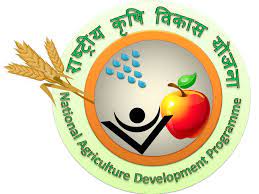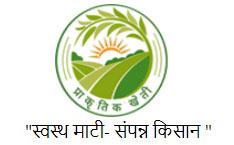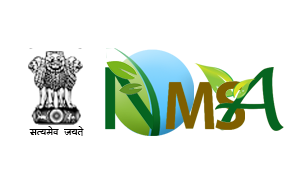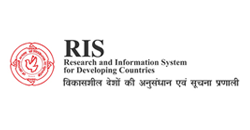Agriculture

Agriculture
The Digital Agriculture Mission 2021–2025 aims to encourage and speed up projects based on cutting-edge technologies, including AI, blockchain, remote sensing, robots, and drones. COVID-19 pandemic has highlighted the need for more resilient, efficient, productive, remunerative and sustainable agriculture. Accordingly, the Government of India prioritized optimum utilization of advanced technologies, to ensure uninterrupted food security and empower farmers by doubling their income.

Pradhan Mantri Fasal Bima Yojana
The Pradhan Mantri Fasal Bima Yojana (PMFBY) scheme provides coverage against financial losses suffered by farmers due to various unfortunate events. It covers crop failure due to localized risks, post-harvest losses, natural calamities, unseasonal rainfall, pests, crop diseases, and so on.
The scheme operates under the motto ‘One Nation, One Crop, One Premium’ and aims to provide affordable crop Insurance to farmers in Bharat. The goal of Pradhan Mantri Fasal Bima Yojana is to expand the penetration of crop in Insurance in Bharat with a primary focus to cover total sown area in the country.
Pradhan Mantri Fasal Bima Yojana (PMFBY) aims at supporting sustainable production in agriculture sector by way of:
- Providing financial support to farmers suffering crop loss/damage arising out of unforeseen events;
- Stabilizing the income of farmers to ensure their continuance in farming;
- Encouraging farmers to adopt innovative and modern agricultural practices;
- Ensuring flow of credit to the agriculture sector; which will contribute to food security, crop diversification and enhancing growth and competitiveness of agriculture sector besides protecting farmers from production risks.

Rashtriya Krishi Vikas Yojna (RKVY)
Rashtriya Krishi Vikas Yojana (RKVY) was launched as a flagship scheme of the Department of Agriculture & Farmers’ Welfare (DA&FW) in 2007-2008 to incentivize states to draw up comprehensive agriculture development plans, taking into account agroclimatic conditions, natural resources and technology for ensuring more inclusive and integrated development of agriculture and allied sectors.
RKVY scheme incentivizes States to increase public investment in Agriculture & allied sectors. Under RKVY, States have been provided flexibility and autonomy for selection, planning approval and execution of projects/programs under the scheme as per their need, priorities and agro-climate requirements. The scheme is available for the various activities of agriculture & allied sector such as crop development, horticulture, agricultural mechanization, marketing, pre & post-harvest management, integrated pest management, organic farming, research, extension etc.
For more information click here
Agriculture Infrastructure Fund (AIF)
The role of infrastructure is crucial for agriculture development and for taking the production dynamics to the next level. It is only through the development of infrastructure, especially at the post-harvest stage that the produce can be optimally utilized with opportunity for value addition and fair deal for the farmers. Development of such infrastructure shall also address the vagaries of nature, the regional disparities, development of human resource and realization of full potential of our limited land resource.
Credit guarantee coverage will be available for eligible borrowers from this financing facility under Credit Guarantee Fund Trust for Micro and Small Enterprises (CGTMSE) scheme for loans up to ₹ 2 crore. The fee for this coverage will be paid by the Government. In case of FPOs the credit guarantee may be availed from the facility created under FPO promotion scheme of DA&FW.
All loans under this financing facility will have interest subvention of 3% per annum up to a limit of ₹ 2 crore. This subvention will be available for a maximum period of 7 years. In case of loans beyond ₹ 2 crore, then interest subvention will be limited up to ₹ 2 crore.
For more information click here
National Mission on Natural Farming (NMNF)
Agriculture is at epicentre of the country’s journey towards Atma Nirbharta (Self-reliance) with farmers at its core. The efforts of our government have consistently focused upon upliftment, empowerment and stability of farmers in the technical, economic and social realm. It is in this endeavour that we continuously explore various methods to achieve ecologically sustainable and economically viable methods. Natural farming is one such method that holds potential to realise all these goals. It is backed by our rich traditional knowledge, and is a practice of agriculture based on locally available resources, which makes it a sustainable and viable practice.
Natural Farming is a way of chemical free farming based on desi cow and locally available resources, with no chemical fertilizers and pesticides and promotes traditional indigenous practices which give freedom to farmers from externally purchased inputs and is largely based on on-farm biomass recycling with major stress on biomass mulching, use of on-farm desi cow dung-urine formulation; managing pests through diversity, on-farm botanical concoctions and exclusion of all synthetic chemical inputs directly or indirectly and emphasis is given on improving natural nutrient cycling and increase in organic matter in the soil, which can help with climate change resilience and carbon sequestration in soils.
Climate smart agriculture is a broader concept which includes all environments friendly agricultural approaches like integrated farming systems, conservation agriculture, natural farming, organic farming, precision agriculture, regenerative agriculture, reclamation of degraded soils and reduced food loss and waste to achieve sustainable agriculture. Climate smart agriculture is an integrated approach to managing landscapes-cropland, livestock, forests and fisheries-that address the interlinked challenges of food security and climate change. It aims to tackle three main objectives: sustainably increasing agricultural productivity and incomes, adapting and building resilience to climate change and reducing greenhouses gas emissions wherever possible and supports FAO strategic framework 2022-2031.
For more information click here
National e-Governance Plan in Agriculture (NeGP-A)
Ministry of Agriculture & Farmers’ Welfare is implementing the National e-Governance Plan – Agriculture (NeGP-A). Its aim is to achieve rapid development in Bharat through use of Information & Communication Technology (ICT) for timely access to agriculture related information for farmers.
A portal has been developed mkisan (mkisan.gov.in) where around 52 million farmers are registered and experts/ scientists of different departments like Bharat Meteorological Department (IMD), Indian Council of Agricultural Research (ICAR), State Governments, State Agriculture Universities send information to farmers in 12 local languages on a regular basis.
For more information click here
Farmers’ Portal
Farmers’ Portal is a one stop shop for farmers where a farmer can get relevant information on a range of topics including seeds, fertilizer, pesticides, credit, good practices, dealer network, availability of inputs, agro met advisory etc.
For more information click here
Kisan Suvidha (Smart App for Farmers)
It is an omnibus mobile app to help farmers by providing relevant information to them quickly. It has a simple interface and provides information on critical parameters—weather, input dealers, market price, plant protection, expert advisories, Soil Health Card, cold storages & warehouses, crop insurance, government schemes etc.
An additional tab directly connects the farmer with the Kisan Call Centre where agriculture experts answer their queries.
For more information click here
National Mission for Sustainable Agriculture
National Mission for Sustainable Agriculture (NMSA) promotes location specific sustainable and best farming practices; soil conservation and moisture protection measures; soil nutrient management; efficient and sustainable water management practices with mainstreaming rain fed methods.
‘On Farm Water Management’ (OFWM) is being implemented with the objective of increasing water use efficiency by promoting modern technologies such as micro irrigation and sustainable water management practices, efficient water consumption, better distribution channels along with secondary storage facilities.
For more information click here
National Agriculture Market (e-NAM)
National Agriculture Market is a pan-Bharat electronic trading (e-trading) portal which seeks to network the existing physical APMCs (Agricultural Produce Marketing Committee) through a virtual platform to create a unified national market for agricultural commodities.
NAM is a “virtual” market but it has a physical market (mandi) at the back end. The NAM Portal provides a single window service for all APMC related information and services.
This includes commodity arrivals, quality & prices, buy & sell offers, provision to respond to trade offers and electronic payment settlement directly into farmers’ account, among other services.
For more information click here












